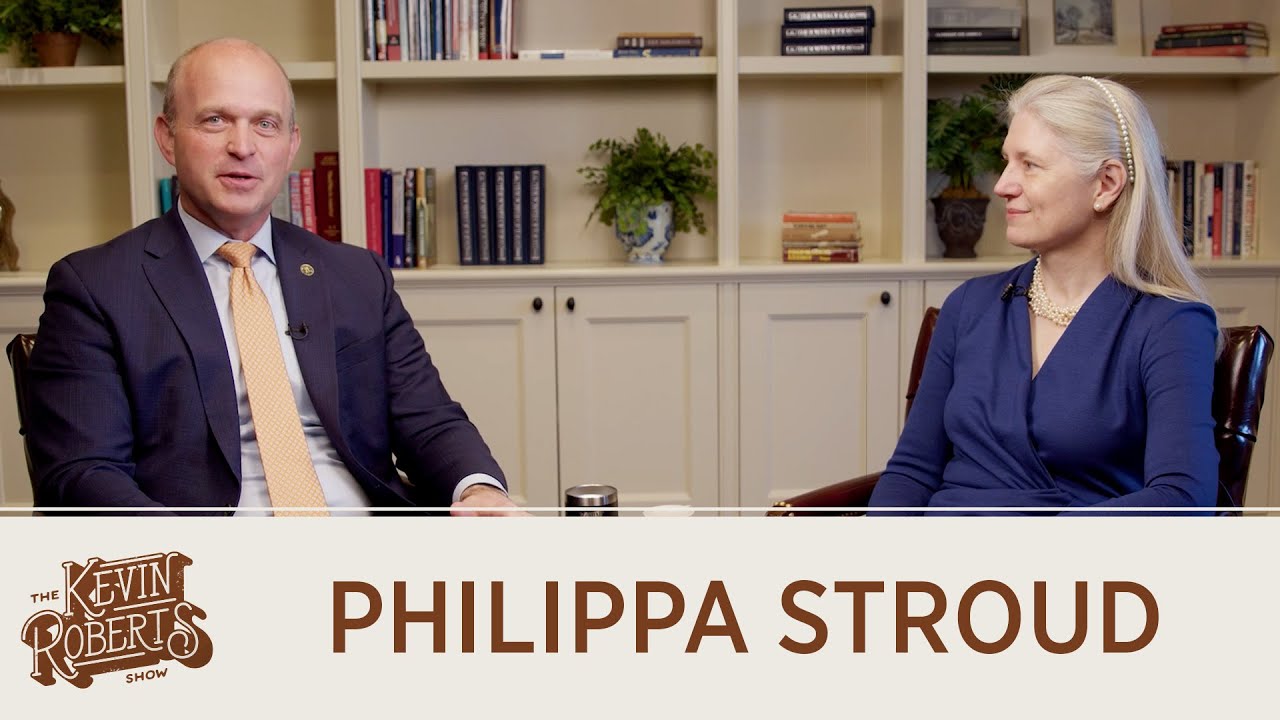Baroness Philippa Stroud’s unexpected segue into politics originated from her early career aiding addicts and the homeless in Hong Kong. Through this hands-on experience, she discerned the interconnection between individual struggles and broader political contexts. Philippa joins Kevin in a conversation about how to advocate for a symbiotic US-UK effort, fostering conducive environments for genuine human flourishing.
Alongside Dr. Jordan Peterson, Baroness Philippa Stroud co-founded the Alliance for Responsible Citizenship (ARC), an international forum dedicated to providing a new collaborative vision for improving global societies. She is a Member of the House of Lords, and Chair of the Social Metrics Commission. Prior to this, she was the CEO of the Legatum Institute and Co-Founder and Chief Executive of the Centre for Social Justice. She served as Special Adviser to the Rt. Hon. Iain Duncan Smith MP from 2010-15 and also to the Prime Minister from 2012-2015.
We as a society need to assert that healthy families build human flourishing in every nation and culture, and we are not being honest with people when we don’t, said the CEO of what has been called the most influential free-marketthink tank in Britain.
“There are some logical steps to what leads to human flourishing, and we need to be open about these things,” Legatum Institute CEO and member of the British House of Lords Baroness Philippa Stroud told Heritage Foundation President Kevin Roberts on “The Kevin Roberts Show” podcast. She said that people should get a job, get married, and then have a child, in that order, to promote success for themselves and their families.
Good social policy (that which promotes healthy families) makes for good economic policy, she said.
“If we don’t have good social policy, we end up spending a huge amount of money on picking up the pieces of a breakdown. Whereas, actually, if we could get ahead of it [the breakdown of individuals and families] in our community to support people properly, then actually it wouldn’t—it doesn’t cost so much money later on,” Stroud asserted.
For the younger generation, there must be an effort to make it possible for them to have “hopes of owning a property” and “ensuring dignified work for all,” according to Stroud.
Success for Stroud would be about changing the narrative to one that is “filling our children’s minds with the facts that they can—they do—have a future.” She said she believes in the importance of young people knowing that their efforts and agency can build and support a future for their families.
“We might have limited resources, but when you take those resources and you match them with human ingenuity, then actually, the potential is unlimited,” Stroud said.
To inspire the next generation, there should be a pathway for good leaders to be embedded in a community, working alongside others to inspire them, she said.
However, sometimes leaders may be reluctant to step forward. “One of the things we’ve seen is great leaders who say what everybody is thinking and then get mobbed on Twitter, and it damages people,” Stroud said.
“The isolated leader standing on a hilltop on their own I don’t think in today’s world will make it. But communities of leaders building this vision, they will make it,” she said.
She said that leaders need to be clear about the problems we have and a vision for addressing them. The challenge with politics is creating clarity about the issues, according to Stroud: “If you don’t create the clarity about the nature of a problem, why would people accept a solution?”
Politicians oftentimes don’t “cast a vision of the possibilities and the future that we can build together. Or if they do, they don’t then actually implement the journey towards that solution. So, people are just left with the nature of a problem,” said Stroud.
“The only way to progress forward in my understanding … is [the] founding principle on the dignity of the human being … and that is a founding principle of this nation [the U.S.]” She said that gives her hope for the future.

